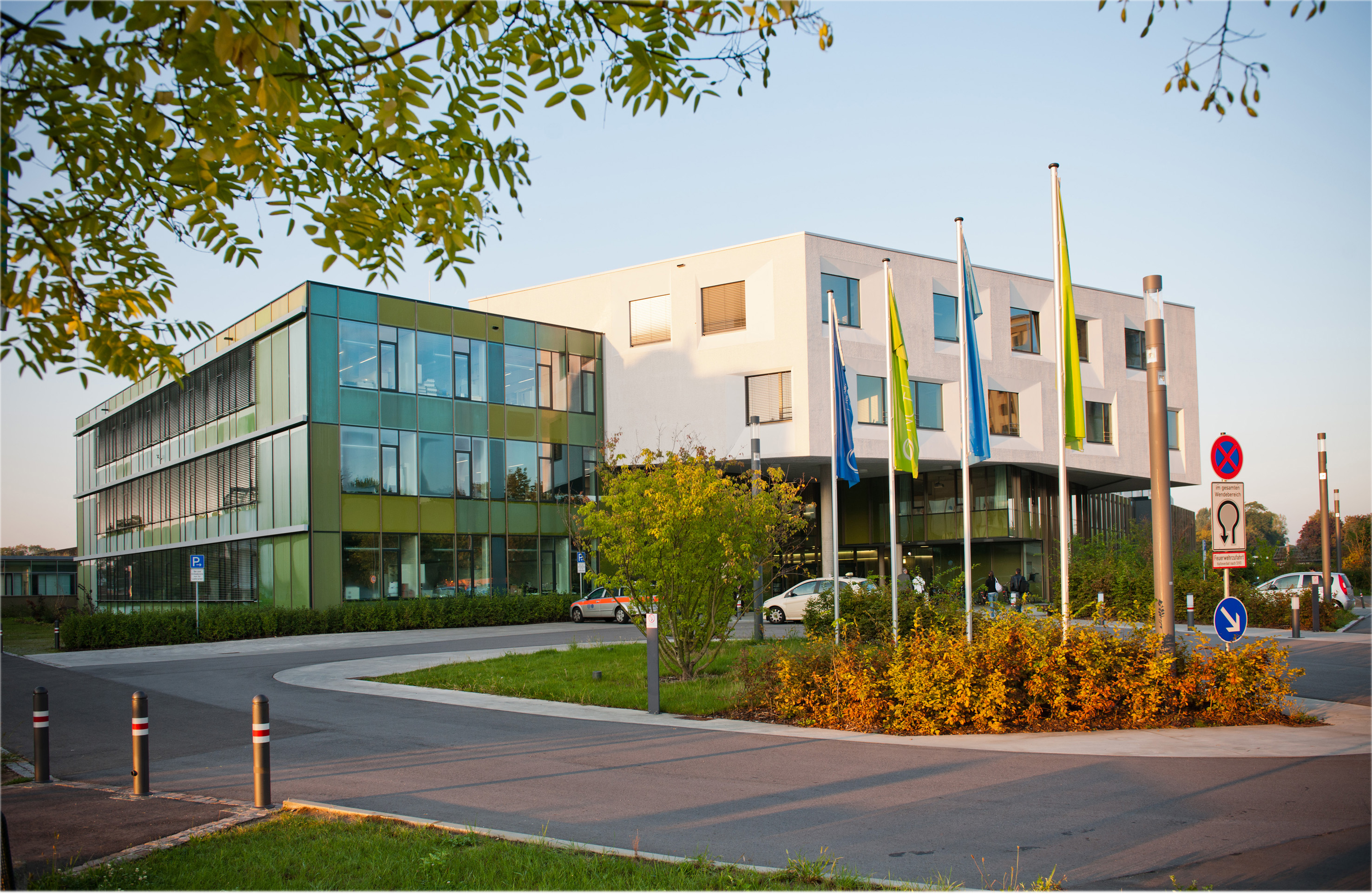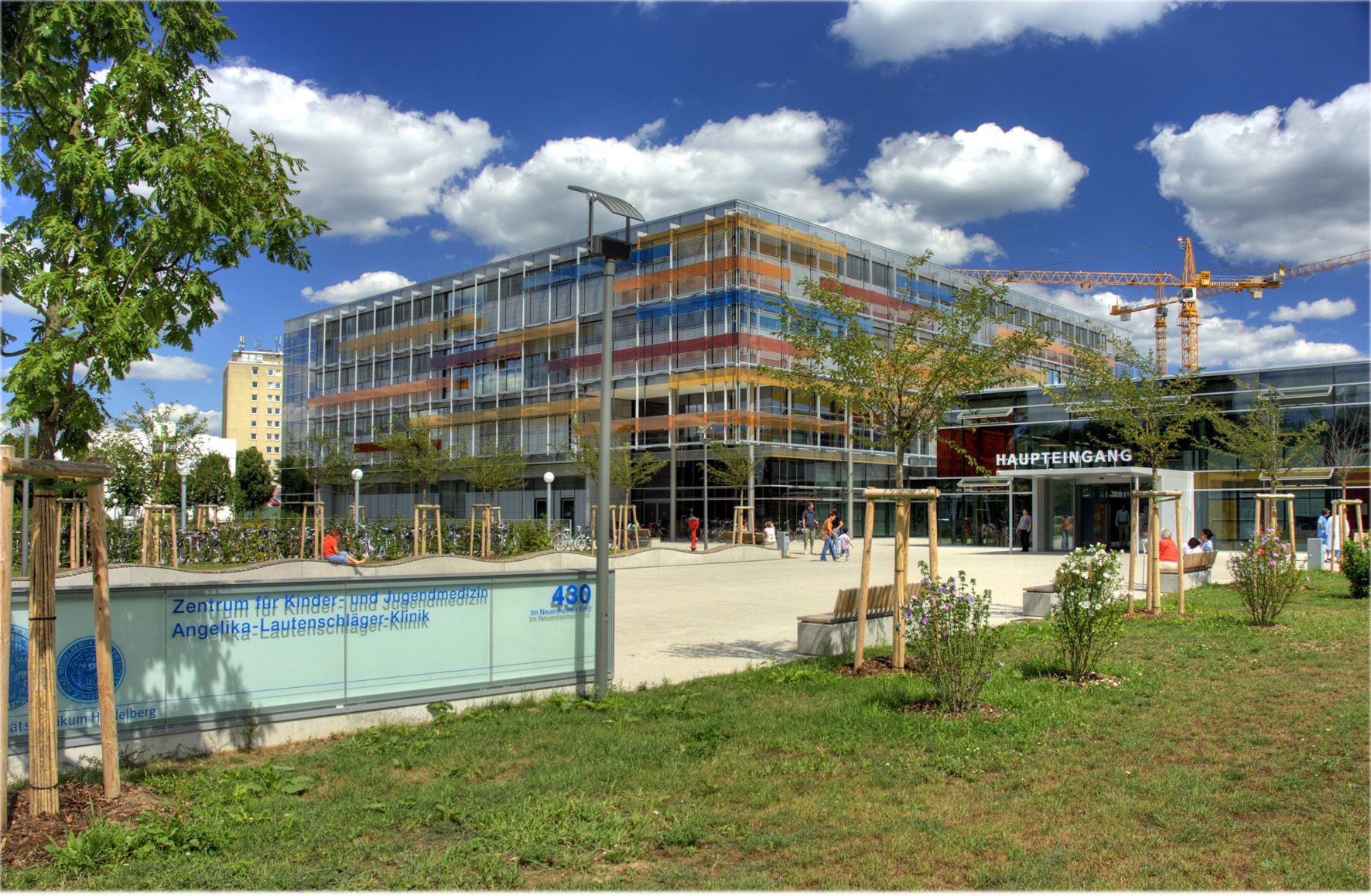Heidelberg University Hospital
| Address | Im Neuenheimer Feld 672 69120 Heidelberg Baden-Württemberg Deutschland |
| Website | www.heidelberg-university-hospital.com |
| Region | Baden-Wuerttemberg More from this region |
Heidelberg University Hospital provides all medical treatment options. The immediate proximity of the departments to each other enables interdisciplinary diagnosis and therapy.
Outstanding areas of expertise are:
- Tumor diseases
- Interdisciplinary diagnosis and choice of treatment at the
- National Center for Tumor Diseases NCT
- Classical and adjuvant chemotherapy, antibody therapy, etc.
- Surgical treatment using the latest technologies
- Highly innovative radiation therapy, including proton and heavy ion beam therapy
- Stem cell transplantation
- Multiple pain therapy methods
- Psychooncology
- Cardiovascular diseases
- Neurological diseases
- Metabolic diseases and hormonal disorders
- Muscoloskeletal diseases
- Transplantation (for international patients: living liver and living kidney transplantation; stem cell transplantation)
- Pregnancy and gynecological diseases
- Childhood diseases
Heidelberg University Hospital employs around 10,000 people including 1700 professors and doctors. It has 11 medical institutes and 44 medical departments. 65,000 inpatients on average are treated annually. Approximately 1,000,000 patients are outpatients. About 3,800 students work here and around 400 have earned their medical degree.

At Heidelberg University Hospital, the National Center for Tumor Diseases (NCT) is integrated, a cooperation project of the German Cancer Research Centre, the German Cancer Aid and the Heidelberg University Hospital. The center has a tumor outpatient center with interdisciplinary tumor consulting hours and own smoker consultation sessions. In addition, the center accommodates an oncological outpatient clinic with genetic counseling, psychosocial cancer aftercare and social services.
Regular tumor conferences with doctors from various disciplines as well as experts from research, care and counseling services enable individually tailored therapies for patients depending on the type of tumor.
Heidelberg University Hospital has an own clinical division for neuro-oncology, where radio-oncologists, internal and pediatric oncologists, neurologists, neurosurgeons, neuro-radiologists and neuropathologist work closely together. Cooperation between neuro-oncology and neuroradiology enables accurate diagnosis using imaging methods and innovative, less invasive treatment methods in the therapy of pain and in diseases of the vascular system of brain and spinal cord. Technical and methodological developments have made significant progress in neuroradiology in recent years.
In addition, Heidelberg University Hospital has a reference center for minimally invasive surgery. The reference center was certified by the German Society for General and Visceral Surgery (DGAV) for its achievements, particularly in relation to surgery without scars. In a training center, surgeons are trained by means of a computer simulator to master technically demanding and complex minimally invasive interventions.

In the field of research and training Heidelberg is a prestigious address: Founded in 1388, the medical faculty of Heidelberg University is the oldest in Germany. It is one of the world's leading biomedical research institutions in Europe. The degree program "Curriculum Medicinale (HeiCuMed)" is at the top of medical teaching and training in Germany.
- Certified "Marfan center", awarded by the state government of Baden-Württemberg »
- Certified European Pancreas Center; awarded by the German Society of General and Visceral Surgery (DGAV) »
- Certified Department of General, Visceral and Transplantation Surgery; awarded by the German Society of General and Visceral Surgery (DGAV) »
- Certified Quality Management of the Department of Clinical Pharmacology (DIN EN ISO 9001: 2008) »
- Certified Skin Cancer Center; certified by the German Cancer Society »
- Certified Reference Center for Minimally Invasive Surgery by the German Society for General and Visceral Surgery (DGAV) »
- Certified Skin Cancer Center; the first center in Germany awarded by "OnkoZert" »
- Certified lung cancer center; certified by the German Society for Pneumology and Respiratory Medicine »
The following features guarantee effective diagnosis and treatment:
- highly qualified and experienced personnel, including many internationally
- renowned professors
- interdisciplinary cooperation between specialists from different medical divisions
- rapid implementation of knowledge gained from research
- treatments based on current standards (standard operating procedures) and ongoing quality assurance measures
- the most modern technical equipment
Registered medical specializations

